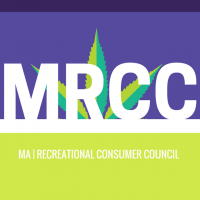Last month, the Cannabis Control Commission, the regulatory body overseeing Massachusetts’ newest industry, finalized their regulations for the market. At the beginning of this month, the state began accepting applications for business licenses. Now with the full implementation of adult-use sales on the horizon, businesses, regulators, consumers and local governments are preparing themselves for the legalization of adult-use cannabis. Sales are expected to begin June 1st.
On March 29th, the Cannabis Control Commission announced their finalized rules were filed, published and took effect. Leading up to the filing, the Commission reports they held 10 listening sessions, received roughly 500 public comments and conducted 7 hearings for roughly 150 policy decisions. The license categories that businesses can apply for include cultivator, craft marijuana cooperative, microbusiness, product manufacturer, independent testing laboratory, storefront retailer, third-party transporter, existing licensee transporter, and research facility, according to the press release.
 What separates Massachusetts’ rules from other states’ rules are a few of the license categories as well as environmental regulations, as Kris Kane highlights in this Forbes article. Experimental policies, like the microbusiness and craft marijuana co-op licenses, Kane says, are some tactics the Commission hopes may help those affected by the drug war and those who don’t have the capital and funding required for the larger license types.This is a groundbreaking reform previously unseen in states that have legalized cannabis.
What separates Massachusetts’ rules from other states’ rules are a few of the license categories as well as environmental regulations, as Kris Kane highlights in this Forbes article. Experimental policies, like the microbusiness and craft marijuana co-op licenses, Kane says, are some tactics the Commission hopes may help those affected by the drug war and those who don’t have the capital and funding required for the larger license types.This is a groundbreaking reform previously unseen in states that have legalized cannabis.
The Commission will also establish a Social Equity Program, as outlined in the final rules (section 17 of 500.105). That program is designed to help those who have been arrested of a cannabis-related crime previously or lived in a neighborhood adversely affected by the drug war. “The committee makes specific recommendations as to the use of community reinvestment funds in the areas of programming, restorative justice, jail diversion, workforce development, industry-specific technical assistance, and mentoring services, in areas of disproportionate impact,” reads one excerpt from the rules (section 500.002) identifying the need for a Citizen Review Committee, which advises on the implementation of that Social Equity Program.
This is a groundbreaking reform previously unseen in states that have legalized cannabis. Massachusetts may very well be the first state to actively help victims of the prohibition of cannabis.Some municipalities are hesitant and skeptical, while others are fully embracing the new industry with open arms.
For environmental rules, Kane notes the Commission is taking unprecedented steps to address energy usage in the cultivation process, pushing the industry to think about environmental sustainability in their bottom line and as part of their routine regulatory compliance. He says the Commission mandates a 36 watts-per-square-foot maximum for indoor cannabis cultivators.
On Monday, April 2nd the state began accepting applications for businesses seeking licensure. Within a few days, nearly 200 businesses have applied. That number is expected to grow significantly over the next few weeks.
While businesses continue applying for licenses, local governments are preparing in their own way. Some municipalities are hesitant and skeptical, while others are fully embracing the new industry with open arms.
A couple weeks ago, the City Council of Springfield, Massachusetts passed a six-month moratorium on cannabis sales, citing the need for more time to draft local regulations for businesses first. “I believe the moratorium is in place to make sure that we get it right the first time,” Councilor Adam Gomez, chairman of the council’s Economic Development Committee told MassLive. “We don’t have a chance to get it right the second time. The residents of Springfield supported this.” There are also talks of a potential temporary ban in Truro, MA.
Meanwhile in the city of Attleboro, ABC6 News reports Mayor Paul Heroux is “working to make his city marijuana friendly as city councilors work to draft regulation ordinances.” In Peabody, two businesses just received approval to begin operating as medical dispensaries.







